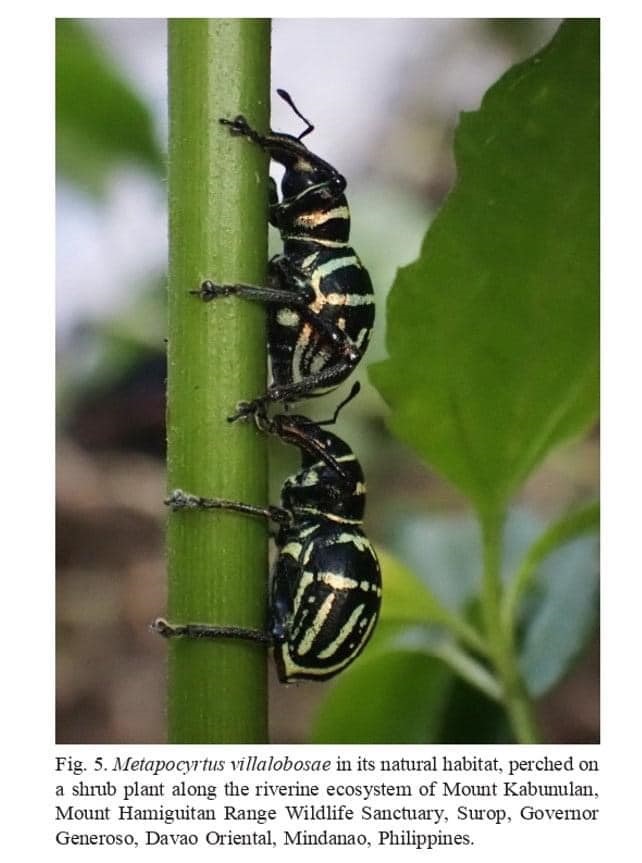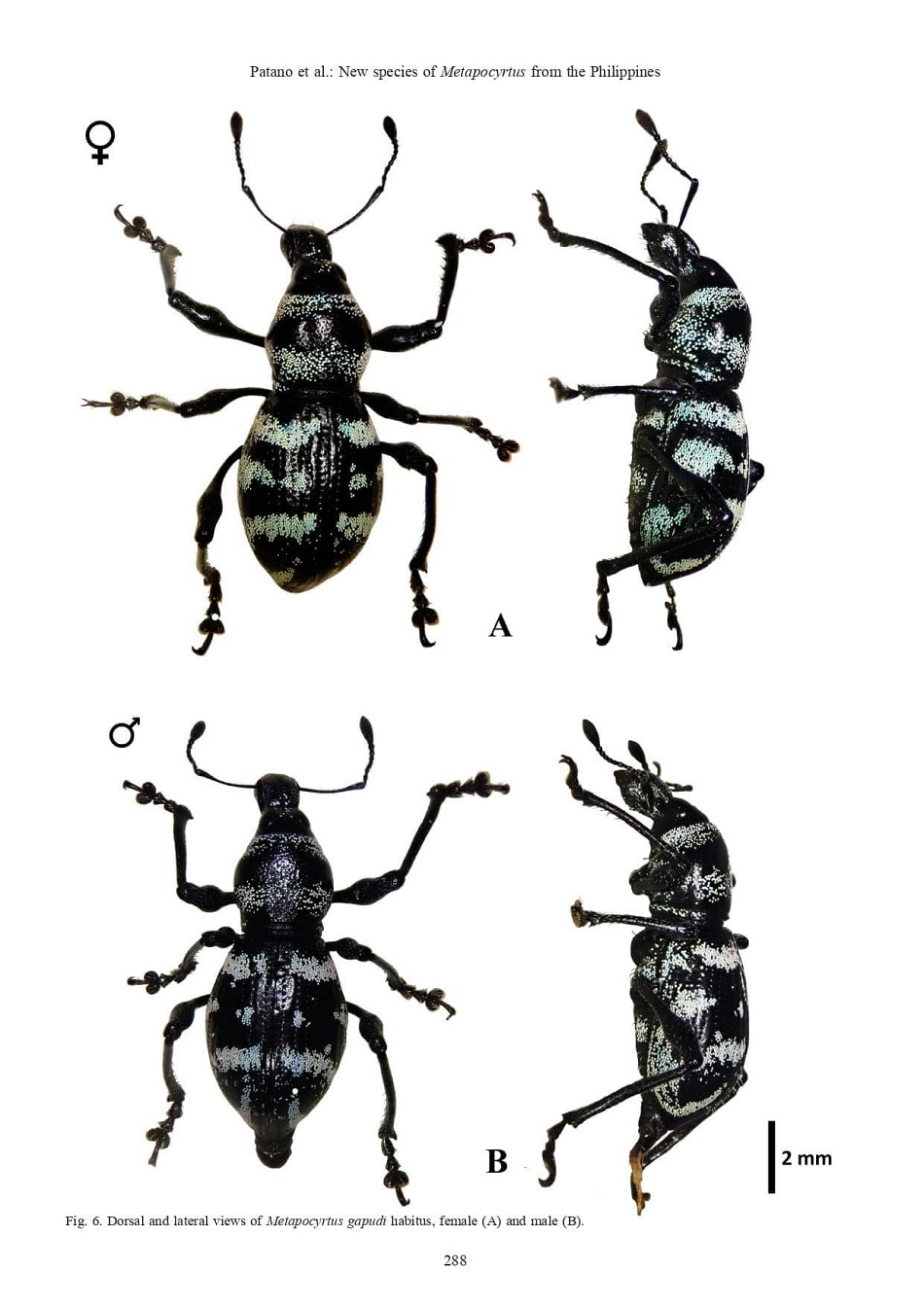New species of snout beetles discovered in Mount Hamiguitan in Davao Oriental | ABS-CBN
ADVERTISEMENT

Welcome, Kapamilya! We use cookies to improve your browsing experience. Continuing to use this site means you agree to our use of cookies. Tell me more!
New species of snout beetles discovered in Mount Hamiguitan in Davao Oriental
New species of snout beetles discovered in Mount Hamiguitan in Davao Oriental
ABS-CBN News
Published Aug 27, 2021 05:07 AM PHT
The Department of Environment and Natural Resources in Davao region on Wednesday said another new and endemic species of snout beetles were recently discovered in the lowland forest of Mount Hamiguitan, the only UNESCO World Heritage Site in Mindanao, in San Isidro town, Davao Oriental.
The Department of Environment and Natural Resources in Davao region on Wednesday said another new and endemic species of snout beetles were recently discovered in the lowland forest of Mount Hamiguitan, the only UNESCO World Heritage Site in Mindanao, in San Isidro town, Davao Oriental.
In April, the DENR reported the discovery of new beetle species.
In April, the DENR reported the discovery of new beetle species.
Two more of its kind have been newly described by the scientists, researchers, and entomologists of Central Mindanao University and University of the Philippines in Los Baños.
Two more of its kind have been newly described by the scientists, researchers, and entomologists of Central Mindanao University and University of the Philippines in Los Baños.
According to the researchers, the two new and endemic species — M. villalobosae and M. gapudi of the genus Metapocyrtus — are considered one of the most diverse and complex beetle genera.
According to the researchers, the two new and endemic species — M. villalobosae and M. gapudi of the genus Metapocyrtus — are considered one of the most diverse and complex beetle genera.
ADVERTISEMENT
"Metapocyrtus villalobosae was concluded being distinct from all other beetles for having a wider than long rostrum, the presence of blue to light yellow and gold scale markings and having two unique longitudinal stripes in the apical half of each elytron,” the DENR said in a statement.
"Metapocyrtus villalobosae was concluded being distinct from all other beetles for having a wider than long rostrum, the presence of blue to light yellow and gold scale markings and having two unique longitudinal stripes in the apical half of each elytron,” the DENR said in a statement.
Both beetles were said to be found perching on a shrub in the forest.
Both beetles were said to be found perching on a shrub in the forest.
DENR Region 11 said the Mount Hamiguitan Range Wildlife Sanctuary remains home to countless, rare and endemic wildlife species.
DENR Region 11 said the Mount Hamiguitan Range Wildlife Sanctuary remains home to countless, rare and endemic wildlife species.
According to the UNESCO World Heritage Centre, Hamiguitan is home to 1,380 species with 341 endemic species, including the critically endangered Philippine eagle and Philippine cockatoo.
According to the UNESCO World Heritage Centre, Hamiguitan is home to 1,380 species with 341 endemic species, including the critically endangered Philippine eagle and Philippine cockatoo.
The DENR said agency and conservation partners will continue in its protection and conservation efforts for this “nature’s gem”. — With a report from Hernel Tocmo
The DENR said agency and conservation partners will continue in its protection and conservation efforts for this “nature’s gem”. — With a report from Hernel Tocmo
ADVERTISEMENT
ADVERTISEMENT




